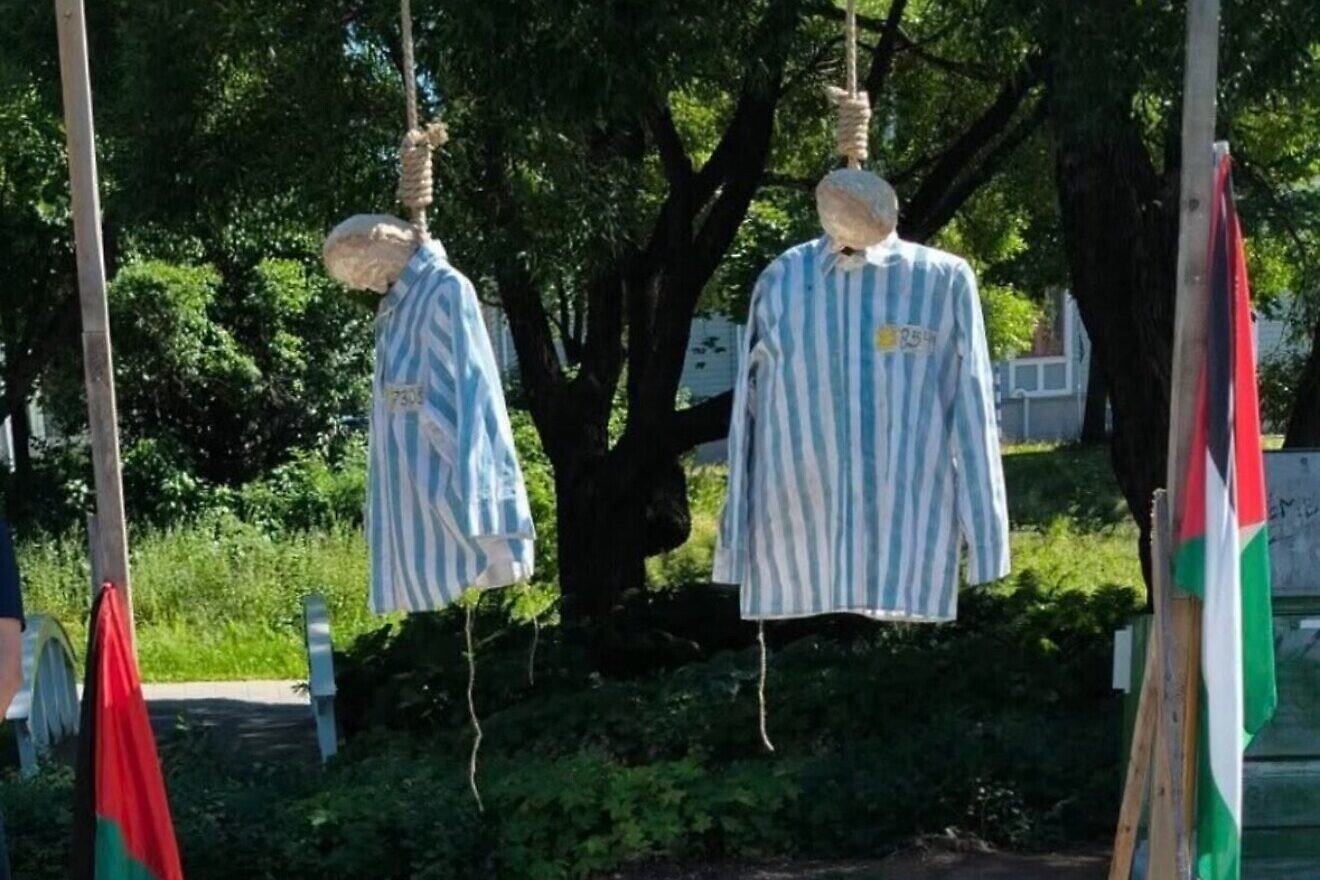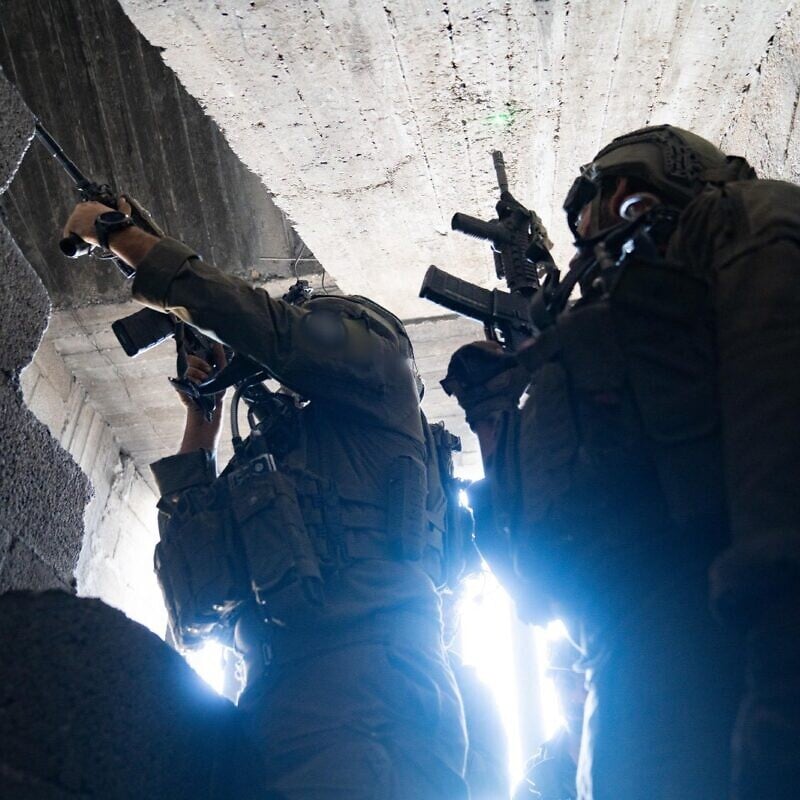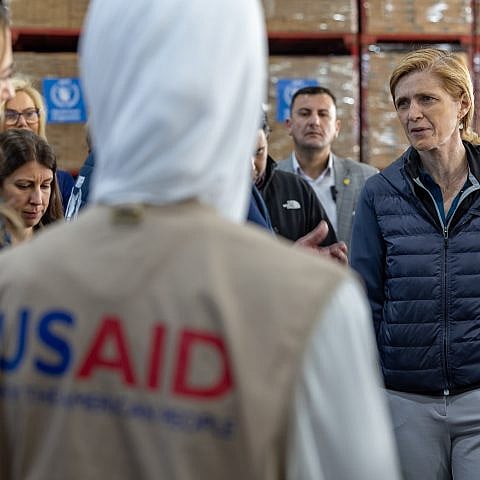by Jerry Dunleavy
Tulsi Gabbard sends DOJ evidence related to the actions of senior intelligence officials before and after the creation of the 2016 intelligence community assessment on Russian meddling.
Director of National Intelligence Tulsi Gabbard has sent declassified evidence to the Justice Department on what she dubbed a “treasonous conspiracy” related to top U.S. intelligence officials allegedly politicizing intelligence related to Russia and the 2016 election.
The Office of the Director of National Intelligence (ODNI) on Friday issued a press release stating that Gabbard had “revealed overwhelming evidence that demonstrates how, after President Trump won the 2016 election against Hillary Clinton, President Obama and his national security cabinet members manufactured and politicized intelligence to lay the groundwork for what was essentially a years-long coup against President Trump.”
Gabbard said the evidence she had unearthed had been forwarded to the DOJ for review. Earlier this month, CIA Director John Ratcliffe also sent a criminal referral to FBI Director Kash Patel related to possible alleged criminality by Obama CIA Director John Brennan, a source previously told Just the News.
“The information we are releasing today clearly shows there was a treasonous conspiracy in 2016 committed by officials at the highest level of our government. Their goal was to subvert the will of the American people and enact what was essentially a years-long coup with the objective of trying to usurp the President from fulfilling the mandate bestowed upon him by the American people,” Gabbard said Friday. “No matter how powerful, every person involved in this conspiracy must be investigated and prosecuted to the fullest extent of the law, to ensure nothing like this ever happens again... As such, I am providing all documents to the Department of Justice to deliver the accountability that President Trump, his family, and the American people deserve.”
Much of the focus of Gabbard’s statements and declassifications related to the Intelligence Community Assessment (ICA) which was completed in December 2016 and released in a public forum in early January 2017.
These declassifications by Gabbard come on the heels of the CIA’s recent eight-page “lessons learned” review — released earlier in July — which concluded that “the decision by agency heads to include the Steele Dossier in the ICA ran counter to fundamental tradecraft principles and ultimately undermined the credibility of a key judgment.” The CIA’s recent review also critiqued the “high confidence” assessment by the FBI and the CIA that Russian leader Vladimir Putin had “aspired” to help Trump win in 2016.
Steele, a former MI6 agent, had been hired in 2016 by the opposition research firm Fusion GPS, which was being paid by Clinton campaign lawyer Marc Elias. The dossier, now discredited, was used by the FBI to obtain FISA warrants against a Trump campaign official, and evidence continues to emerge about how it was included in the ICA on Russia and the 2016 election.
The Gabbard-led intelligence office said of the December 2016 ICA that “after months of investigation into this matter, the facts reveal this new assessment was based on information that was known by those involved to be manufactured i.e. the Steele Dossier or deemed as not credible.”
ODNI’s Director’s Initiatives Group released “Declassified Evidence of Obama Administration Conspiracy to Subvert President Trump’s 2016 Victory and Presidency” on Friday, sharing 114 pages of newly declassified and largely unredacted emails and intelligence reports, as well as publishing what it dubbed a “Russia Hoax memo.”
The 11-page memo had as its subject line, “Intelligence Community suppression of intelligence showing ‘Russian and criminal actors did not impact’ the 2016 presidential election via cyber-attacks on infrastructure.” The memo included a timeline which detailed “Key Intelligence Manipulated and Withheld from the American People by the IC.”
A newly-declassified assessment by the U.S. intelligence community from September 2016, first reported by Just the News, showed the IC did not seem overly concerned by Russian meddling in the 2016 election and made no mention of the Kremlin backing Donald Trump — a tone which would shift dramatically after the November 2016 election.
The heretofore unknown ICA — completed in September 2016 but declassified by Gabbard this week — stood in stark contrast to the later ICA which would be completed in December 2016.
The September 2016 assessment made no mention of Russia’s alleged animosity towards Clinton nor of its supposed preference for Trump, included no discussion of the Kremlin allegedly seeking to sink Clinton’s candidacy and to elevate Trump’s chances, and generally attributed Russian efforts to a generalized desire to undermine the legitimacy of the U.S. election or the legitimacy of the next presidential administration, rather than a desire to pick a winner and a loser in the race.
According to newly-declassified and partially-unredacted September 2019 emails first obtained by Just the News, one surprising assertion that the Steele dossier had played a role in the ICA seemed to originate with top IC election security official Shelby Pierson, who had been appointed the Election Threats Executive (ETE) within the Office of the Director of National Intelligence (ODNI) by then-DNI Dan Coats just a couple months prior.
The National Intelligence Council’s deputy national intelligence officer for cybersecurity responded to the email with a stunned tone, dismayed that the Steele dossier’s use in the ICA could have been hidden from him. Gabbard’s office said on Friday that this intelligence officer became a whistleblower.
Since-fired FBI Director James Comey and former FBI Deputy Director Andrew McCabe had pushed in December 2016 to include British ex-spy Christopher Steele's debunked dossier in the 2016 ICA on alleged Russian meddling. The recent CIA review also sharply criticized Brennan for allegedly joining with these anti-Trump forces in the FBI in pushing to include Steele’s baseless anti-Trump dossier in the assessment.
"I think this is unfortunately a very sad and tragic example of the continued politicization of the intelligence community, of the national security process," Brennan told MSNBC earlier this month, adding that the purported investigation into him "clearly is just politically based."
The December 2016 assessment from the CIA, the FBI, and the NSA — made public in early January 2017 — concluded with “high confidence” that Putin “ordered an influence campaign in 2016” and that Russia worked to “undermine public faith in the U.S. democratic process, denigrate former Secretary of State [Hillary] Clinton, and harm her electability and potential presidency” and “developed a clear preference for President-elect Trump.”
Admiral Mike Rogers, then the leader of the NSA, diverged from Brennan and Comey on one key aspect, expressing only “moderate confidence” rather than “high confidence” that Putin had “aspired to help” Trump’s election chances in 2016 by “discrediting” Clinton" and publicly contrasting her unfavorably to him.”
A recent CIA review stated that “NSA and a few other participants were not comfortable with ascribing ‘high confidence’ to the ‘aspired’ judgment. They cited the limited source base, lack of corroborating intelligence, and ‘the possibility for an alternative judgment’ as driving their discomfort.”
The publicly-available version of the December 2016 ICA stated that “further intelligence has come to light since Election Day that, when combined with Russian behavior since early November 2016, increase our confidence in our assessments of Russian motivations and goals.” A further declassified version of the December 2016 ICA, first obtained by Just the News, also stated that “CIA and FBI have high confidence in this judgment based on sensitive information not included in this version of the assessment.”
A senior intelligence official told Just the News that those two passages were referencing two main pieces of information — a secret source closely-held by Brennan, and the anti-Trump Steele dossier.
House Intelligence Committee Chairman Rick Crawford, R-Ark., responded to Gabbard’s declassifications on Friday by tweeting that “to impose large-scale change that gets at redefining the underlying culture, the IC has to be honest about the issues plaguing its analytic integrity” and that “the American people are not to be manipulated with using manufactured or misrepresented intelligence that pushes one political or personal agenda.” He said Trump and Gabbard “deserve credit for continuing to follow through” on Trump’s “commitment to transparency and accountability.”
But a number of key Democrats who work on intelligence community oversight harshly criticized Gabbard’s moves.
“It’s a day that ends with ‘y’ and Donald Trump desperately wants to change the subject, so Director Gabbard is rehashing decade-old false claims about the Obama Administration. Few episodes in our nation’s history have been investigated as thoroughly as the Intelligence Community’s warning in 2016 that Russia was interfering in the election,” House Intelligence Committee Ranking Member Jim Himes, D-Conn., tweeted on Friday. “While everyone has the right to critique the steps that IC leaders took under immense pressure, every legitimate investigation, including the bipartisan Senate Intelligence Committee investigation, found no evidence of politicization and endorsed the findings of the 2016 Intelligence Community Assessment.”
Sen. Mark Warner, D-Va., the vice chairman of the Senate Intelligence Committee, also pointed to his committee’s 2020 report defending the December 2016 ICA on Russian meddling, and he tweeted that “it is sadly not surprising that DNI Gabbard, who promised to depoliticize the intelligence community, is once again weaponizing her position to amplify the president’s election conspiracy theories.”
The Senate Intelligence Committee released a bipartisan report in 2020 defending the 2016 ICA. The panel said congressional investigators found no evidence of political pressure and determined the assessment “presents a coherent and well-constructed intelligence basis for the case of unprecedented Russian interference.” The senators also found that “the differing confidence levels on one analytic judgment are justified and properly represented.”
The only direct mention of the ICA in special counsel John Durham’s 2023 report was to praise prior “careful examinations” such as the Senate Intelligence Committee’s 2020 report on Russia.
The Senate findings clashed with a 2018 report from the GOP-led House Intelligence Committee, chaired at the time by then-Rep. Devin Nunes (R-Calif.), which concluded that “the majority of the Intelligence Community Assessment judgments on Russia’s election activities employed proper analytic tradecraft” but the “judgments on Putin’s strategic intentions did not.” The House report said it “identified significant intelligence tradecraft failings that undermine confidence in the ICA judgments regarding Putin’s strategic objectives.”
The Democrats on the panel, led by then-ranking member Rep. Adam Schiff, D-Calif., released their own report, saying that they “found no evidence that calls into question the quality and reliability of the ICA’s … assessment about President Putin’s desire to help candidate Trump.”
The GOP-led House Intelligence Committee’s classified findings on the 2016 ICA have been closely held by the CIA since 2018, although Ratcliffe handed the still-classified House Intelligence Committee report back over to the committee earlier this month.
Crawford sent Trump a letter this month telling him that a still-classified 2018 report by the committee “exposes the truth about the politically driven Obama-era assessment.” He urged Trump to read the classified report and argued in his letter that “public interest declassification is merited.”
Jerry Dunleavy
Source: https://justthenews.com/government/security/gabbard-sends-declassified-evidence-treasonous-conspiracy-doj-deliver










